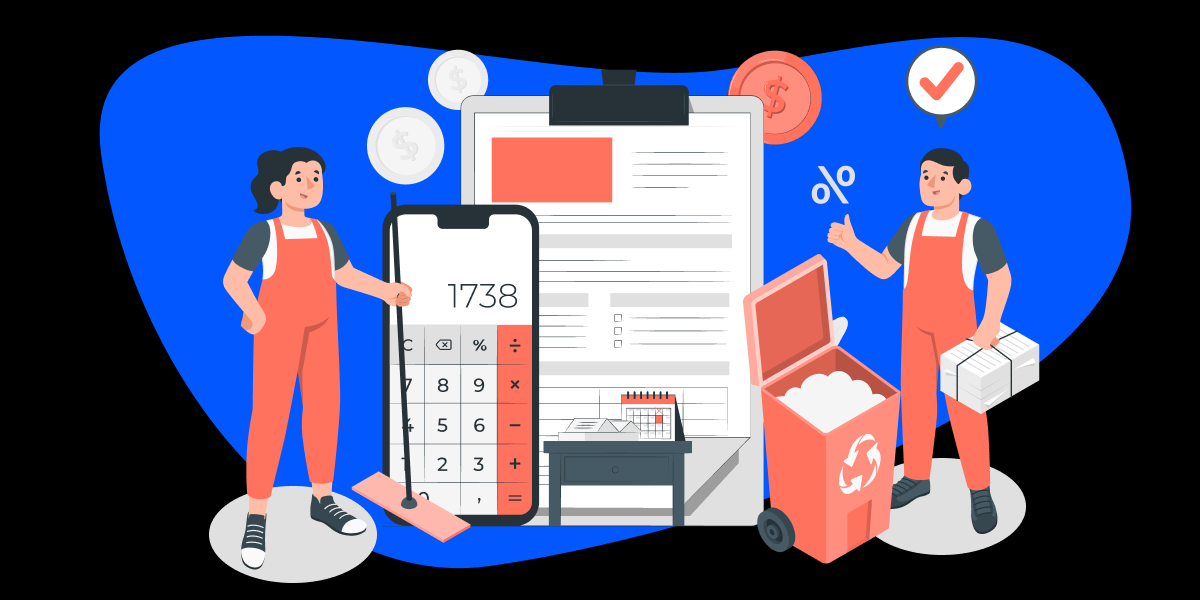A Simple Guide to mPOS Solutions for Small Business
Tips for finding an mPOS solution for small business. Here's what you need to know about accepting mobile payments at your store and online.



Small and local businesses are the economic engine of our society. That being said, they face different challenges than larger enterprises. Time and cost tend to be more of a consideration because small businesses have fewer resources to spare. Payment processing is no exception. We understand that finding an mPOS solution for your business can be tricky, so we’ve put together a quick guide to help you navigate your options.
The Importance of an mPOS Solution for Small Businesses
In this day and age, you need to accept credit card payments and you need to be able to accept them on the go. That’s where an mPOS solution comes into play.
In fact, more consumers than ever are using credit cards to make everyday purchases and they expect this to be a seamless process. In a study by JP Morgan Chase, it was found that 73 percent of consumers said that whether or not they made a purchase depended on whether or not a business could accept their preferred method of payment.
Since cash is no longer king, that means that small businesses that don’t accept credit cards are likely missing out on business — and lots of it.
Finding an mPOS solution for small business is pretty straightforward, but if you haven’t already familiarized yourself with mobile payment processing, we recommend checking out our free fact sheet, What Is Payment Processing?
It will give you a quick overview of how mPOS systems work for small businesses as well as the major players involved.
Methods of Credit Card Processing for Small Business
There’s more than one way to pay. But which is right for you and your business? Let’s take a look at some of the most common methods of credit card processing and discover how an mPOS solution can benefit your business.

An mPOS Solution. A mobile point-of-sale (mPOS) is a smartphone, tablet or wireless device that carries out the functions of a traditional POS terminal wirelessly. All mPOS systems are cloud-based, which means all of the customer information is automatically synced, stored and backed up on the cloud. All that is required to complete mPOS transactions is a designated device and a mobile app. An mPOS can also be paired with additional POS technology like a credit card terminal, online payment processors, barcode scanner or a cash drawer. An mPOS terminal is intended to either replace or compliment your current hardware — it depends on your business needs. You have the option to use the mPOS solution in conjunction with your other payment methods or you can ditch the old payment processor and go completely mobile.
Credit Card Terminal. Right now, this is what we see in most places: a piece of hardware that allows you to scan a card and process a transaction. It’s a simple and trusted solution, although it does pose some issues. First, terminals aren’t always portable, so if your business is mobile, you’re going to need a different kind of solution: an mPOS solution. Second, outdated credit card processing systems can hinder your business, so it’s important that if you go the traditional route, you invest in hardware that’s EMV-enabled.
Merchant Account. A merchant account is typically used to accept payments online, in conjunction with a payment gateway. This is a good option for a business receiving a lot of volume, because the expenses can be rather high. These are convenient because they often double as an in-store and online solution. However, there are usually monthly fees, transaction fees, fees for the associated payment gateway, and so forth.
Third-Party Payment Processor. Also called a payment facilitator, this “all-in-one solution” embodies the best bits of a merchant account without the drawn-out sign up process and excess fees. However, these tend to be more susceptible to be less secure and more prone to fraud, so it’s important to choose a provider that offers the highest-grade encryption available. And, of course, they should be PCI-compliant.
7 Questions to Ask mPOS Payment Processing Companies for Small Businesses
When it comes to mPOS payment processing for small businesses, there are some things to bear in mind. You’ll want to ask providers the right questions, so you can get the answers you need. And while we always recommend reading the fine print, here are some additional questions you want to ask.
1. What additional fees do you charge?
Many mPOS providers and credit card processing companies will charge unnecessary fees such as billbacks, authorization fees, ACH batch fees, minimum processing fees, early cancellation fees, statement fees and more. You want to be particularly wary of early cancellation fees. If you can, try to attain a list of what fees you’ll be charged.
2. What are your fees for online payments vs. swiping vs. manual input?
Each method of payment has a varying degree of risk associated with it, and many payment processors will vary processing fees accordingly. That’s okay, but it’s important that they’re transparent about it and that those rates are acceptable to you.
3. Does the mPOS provider offer other forms of payment?
Usually, mPOS solutions are just one of the forms of payment processing that a POS provider offers. Typically, the provider will have other payment processing solutions available.

4. Is there a processing limit?
Especially if you expect a busy season, you’re going to want to go with a provider that doesn’t have a processing limit. It’s more than a little frustrating if business is booming and you suddenly can’t accept credit card payments and have to turn away business.
5. How long will it take to be approved and to start making transactions?
It’s a good idea to be aware of how long the application and approval process will take. A merchant account will take longer than a third-party processor, as some third-party processors can have you approved in 2-3 days. With many mPOS solutions, it can be even quicker.
6. How secure is my clients’ information?
The answer to this question should involve words like “tokenized,” “PCI-compliant,” and “point-to-point encryption.” These are industry best practices and for the security of your customers and company, you don’t want to settle for anything less.
7. Can this mPOS solution double as an in-store and online solution?
Especially if you sell your services online, an all-in-one solution will keep you from having to use several payment processors. Look for a payment processor that integrates with your website — some will even align with your CRM software and appointment calendar, allowing customers to book and pay for a service online.
Finding an mPOS system for your small business can feel intimidating, but it doesn’t have to be. If you want to test the waters with an mPOS solution, check out our free trial: it includes a complete all-in-one payment processing solution as well as automatic SEO, convenient website builder, reviews manager, and more!

%20(1)%20(1).png?width=340&name=Group%2012%20(2)%20(1)%20(1).png)



